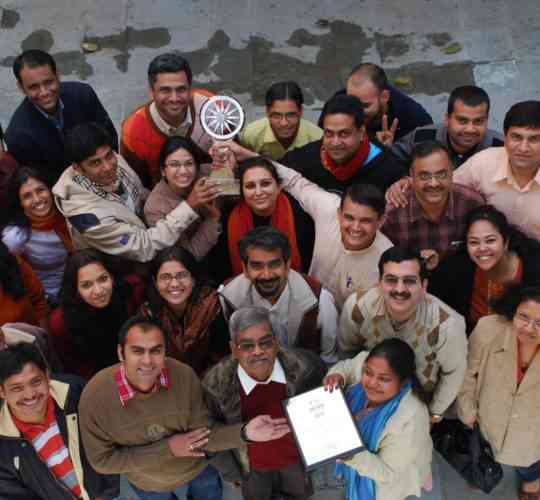Sustainable Environment and Ecological Development Society (SEEDS)
Founded in 1994, SEEDS is committed to building the resilience of people exposed to disasters. We have been enabling this through practical solutions for disaster readiness, response and rehabilitation. Our approach has involved grafting innovative technology on to traditional wisdom.
Description
SEEDS is committed to building the resilience of people exposed to disasters. Our mission is to equip the most vulnerable with appropriate tools and technologies combined with traditional wisdom, sharing knowledge and skills and promoting linkages among stakeholders to prevent loss of life and suffering. Since our foundation, we have been enabling this through practical solutions for disaster readiness, response and rehabilitation.
Over this time, our dedicated team has partnered families affected by disasters and climate emergencies in a variety of ways. Disaster survivors have had schools, homes and community infrastructure restored and upgraded. Marginalised communities have gained access to clean water, sanitation and health facilities. Nature-based solutions have been designed to help adapt to climate change in ecologically-sensitive areas. We have also invested in skill building, partnerships and advocacy to build the long-term resilience of at-risk communities. We do this in an interconnected manner – in peacetime, before, during and after a disaster.
Our work covers three broad areas: a) Humanitarian Response, SEEDS tailors response to the immediate needs of a community after a disaster; b) Building Back Better, SEEDS partners with survivors to rebuild their homes, schools and community infrastructure as well as to address ecosystems around these; and c) Reducing Future Risks, SEEDS works with communities to be better prepared for future disasters and reduce overall risks. Within these broad areas, specific programmes focus on safer housing, schools & community infrastructure; water & sanitation; the environment; and health – all with an ecosystem approach.
Our work has reached families across India and Nepal. However, SEEDS continues to advocate for and work with communities across Asia to build a safer and more sustainable world. SEEDS has been receiving a number of awards, including most recently the Subhash Chandra Bose Aapda Prabandhan Purasakar 2021 by the Government of India.
Did the Sendai Framework change or contribute to changes in your activities/organization? If so, how?
The Sendai Framework underlines that when a disaster strikes, it is women, children and people in vulnerable situations overall who are disproportionately affected. In particular our work is aligned with the call to ensure the use of traditional, indigenous and local knowledge and practices, as appropriate, to complement scientific knowledge in disaster risk assessment and the development and implementation of policies, strategies, plans and programmes of specific sectors, with a cross-sectoral approach, which should be tailored to localities and to the context.
What led you to make this commitment/initiative?
What was your position before making this Voluntary Commitment / prior to the Sendai Framework?
Asia-Pacific as a whole is already the most disaster-prone continent in the world. India, in particular, is highly vulnerable to a range of natural hazards including earthquakes, floods, cyclones, droughts and landslides. The impacts of climate change and unplanned build-up are putting the most vulnerable at even greater risk. Weather-related emergencies are growing more intense, frequent and unpredictable. Secondary impacts on health, safety and ways of life are increasing. The recurring nature and frequency of disasters in India and region made a strong case for SEEDS to focus on Disaster Risk Reduction (DRR). With Disaster Management Act 2005 of India in place, we are partnering with vulnerable communities to build their resilience to disasters. We use innovative approaches and technologies that work for that particular community.

